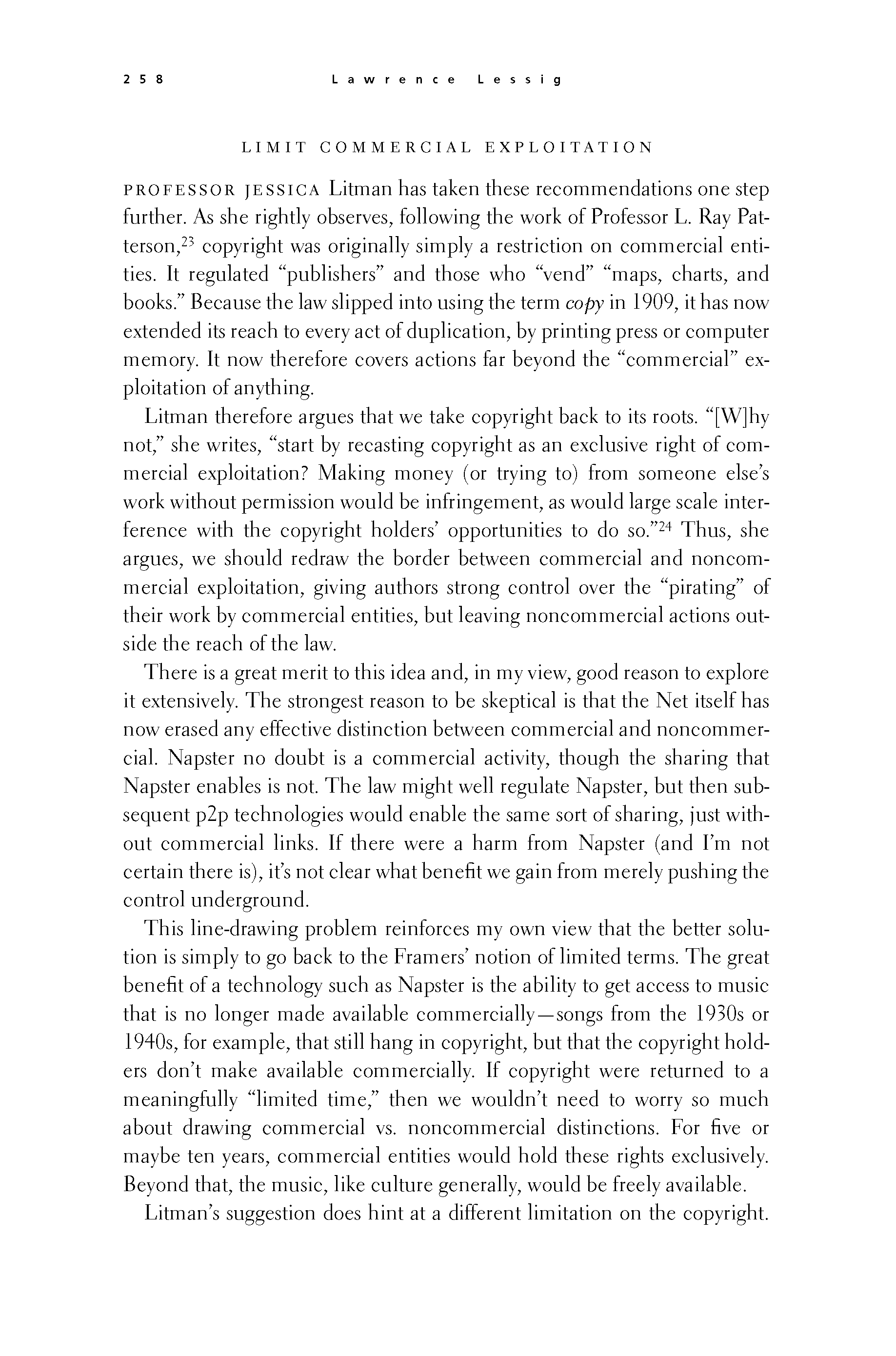 p257 _
-chap- _
toc-1 _
p258w _
toc-2 _
+chap+ _
p259
p257 _
-chap- _
toc-1 _
p258w _
toc-2 _
+chap+ _
p259
/tab\/tab\LIMIT COMMERCIAL EXPLOITATION/tab\/tab\
Professor Jessica Litman has taken these recommendations one step
further. As she rightly observes, following the work of Professor L. Ray Pat-
terson,[14-23] copyright was originally simply a restriction on commercial enti-
ties. It regulated "publishers" and those who "vend" "maps, charts, and
books." Because the law slipped into using the term _copy_ in 1909, it has now
extended its reach to every act of duplication, by printing press or computer
memory. It now therefore covers actions far beyond the "commercial" ex-
ploitation of anything.
Litman therefore argues that we take copyright back to its roots. "[W]hy
not," she writes, "start by recasting copyright as an exclusive right of com-
mercial exploitation? Making money (or trying to) from someone else's
work without permission would be infringement, as would large scale inter-
ference with the copyright holders' opportunities to do so."[14-24] Thus, she
argues, we should redraw the border between commercial and noncom-
mercial exploitation, giving authors strong control over the "pirating" of
their work by commercial entities, but leaving noncommercial actions out-
side the reach of the law.
There is a great merit to this idea and, in my view, good reason to explore
it extensively. The strongest reason to be skeptical is that the Net itself has
now erased any effective distinction between commercial and noncommer-
cial. Napster no doubt is a commercial activity, though the sharing that
Napster enables is not. The law might well regulate Napster, but then sub-
sequent p2p technologies would enable the same sort of sharing, just with-
out commercial links. If there were a harm from Napster (and I'm not
certain there is), it's not clear what benefit we gain from merely pushing the
control underground.
This line-drawing problem reinforces my own view that the better solu-
tion is simply to go back to the Framers' notion of limited terms. The great
benefit of a technology such as Napster is the ability to get access to music
that is no longer made available commercially -- songs from the 1930s or
1940s, for example, that still hang in copyright, but that the copyright hold-
ers don't make available commercially. If copyright were returned to a
meaningfully "limited time," then we wouldn't need to worry so much
about drawing commercial vs. noncommercial distinctions. For five or
maybe ten years, commercial entities would hold these rights exclusively.
Beyond that, the music, like culture generally, would be freely available.
Litman's suggestion does hint at a different limitation on the copyright.
[[258]]
p257 _
-chap- _
toc-1 _
p258w _
toc-2 _
+chap+ _
p259